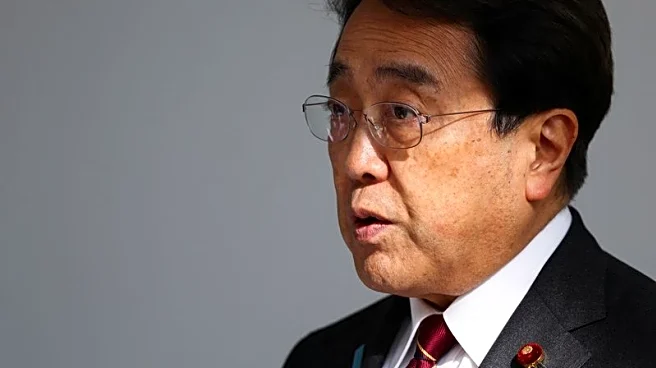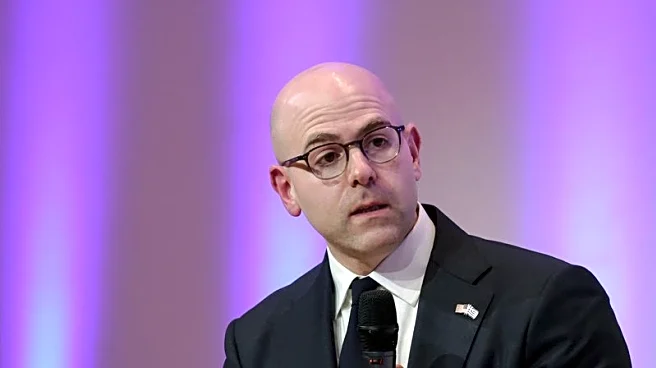What's Happening?
Tesla's board of directors has proposed a compensation package for Elon Musk that could amount to $878 billion in company stock. Shareholders are set to vote on this proposal, which is seen as a significant bet on Musk's ability to transform Tesla into
a leader in artificial intelligence and autonomous vehicles. The board argues that Musk's leadership is crucial for achieving ambitious growth targets, including the development of self-driving robotaxis and humanoid robots. However, the proposal has sparked debate over corporate governance practices, as it ties Tesla's future closely to a single leader.
Why It's Important?
The proposed compensation package is unprecedented in its size and scope, raising questions about corporate governance and the concentration of power within Tesla. While some investors support the package, believing it aligns Musk's interests with those of shareholders, others warn of the risks associated with such a large commitment to one individual. The decision could set a precedent for executive compensation in the tech industry, influencing how companies balance rewarding innovation with maintaining governance standards.
What's Next?
The outcome of the shareholder vote will determine whether Musk receives the proposed compensation. If approved, it could lead to increased scrutiny of Tesla's governance practices and potentially inspire similar compensation structures in other companies. Conversely, if rejected, Tesla may need to explore alternative strategies to retain Musk and achieve its growth objectives. The decision will likely prompt discussions among investors, governance experts, and industry analysts about the future of executive compensation.
Beyond the Headlines
The proposal highlights the ethical considerations of tying a company's success to a single leader. It raises questions about the long-term sustainability of such an approach and the potential impact on corporate culture and decision-making. As Tesla navigates these challenges, it may need to address concerns about diversity in leadership and the importance of fostering a competitive market for executive talent.

















